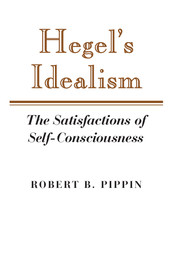2 - Kantian and Hegelian idealism
Published online by Cambridge University Press: 05 June 2012
Summary
Apperception
In a letter to Schelling in 1795, when Hegel was still a tutor in Bern and still preoccupied with theological, political, and pedagogical issues, he writes enthusiastically that “From the Kantian system and its highest completion, I expect a revolution in Germany.” And “The consequences that will result from it will astonish many a gentleman. Heads will be reeling at this summit of all philosophy by which man is being so greatly exalted.” It will take Hegel almost a full decade (and a break with Schelling) before his published work begins to reveal how he construed this completion of Kant, and indeed, why Hegel thought Kant's philosophy needed to be completed. Even then, and throughout his career, this positive reaction to Kant is intertwined with deep theoretical disagreements, a distaste for what Kant's practical philosophy had become in the hands of unworthy epigones, and in some highly rhetorical passages what appears to be a personal contempt for Kant's timidity, his not having the courage of his own convictions. However, as indicated in the previous chapter, whatever difficulties might exist in untangling the issues involved in Hegel's complex and often elliptical relation to Kant, without some understanding of that issue, many of the items on Hegel's own idealist agenda cannot be properly understood, and the questions Hegel undertakes to answer will remain hidden.
- Type
- Chapter
- Information
- Hegel's IdealismThe Satisfactions of Self-Consciousness, pp. 16 - 41Publisher: Cambridge University PressPrint publication year: 1989



